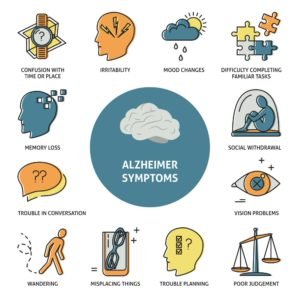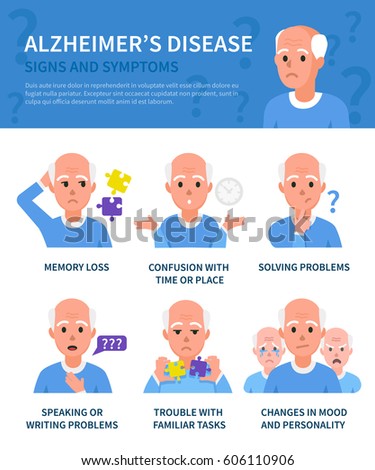
As the disease progresses, the symptoms of Alzheimer’s disease become more severe and the patient requires more help with daily activities. These changes may include confusion about events and time, mood changes, and unfounded suspicions about caregivers. In some cases, the patient may not recognize their long-time friends or family. Other symptoms include difficulty speaking and swallowing. These symptoms can be distressing to the individual, and their family members and friends.
There are no known causes of Alzheimer’s disease, but it’s possible to slow the progression or reverse the deterioration of memory. Until then, researchers continue to search for new ways to detect and treat the disease. Until then, though, there is little hope for finding a cure. Several drugs are currently being studied in clinical trials, and they may slow the progression of the disease or improve a patient’s memory for a certain period of time. A person with this condition should maintain good physical and social activity, proper nutrition, and health maintenance.
Although the symptoms of Alzheimer’s disease are similar to those of other diseases, the underlying cause is often unknown. There are many genetic variations and environmental factors that can lead to the disease, but there are some specific things that can be done to minimize the risk. For example, a person with Down syndrome may be genetically predisposed to Alzheimer’s disease. Although the disease is inherited, environmental and lifestyle factors may also play a role.
Despite numerous studies and discoveries, there is no cure for Alzheimer’s disease. All treatments, although providing symptomatic relief, are still purely palliative. Alzheimer’s disease treatments fall into three main categories: pharmaceutical, psychosocial and nursing. The symptoms of this disease can be very subtle and unnoticeable to the untrained eye. However, it is important to treat the disease and ensure the safety of your loved one.

Although a person with this condition can communicate, its symptoms are often unpredictable. It may take time for the disease to manifest itself in a patient. Without a diagnosis, the disease can progress to dementia. There are many symptoms of the disease, so it is extremely important to provide proper care for your loved one. If you suspect your loved one has Alzheimer’s disease, make sure they see their doctor regularly. If you are concerned that your loved one has this disease, it is important to know what to expect and what to look for. For more information about Alzheimer’s disease, please visit https://www.motherandcare.in.th/.
Although there is no specific cure for Alzheimer’s disease, there are several treatments that can help reduce symptoms and slow the progression of the disease. Some of these treatments can even be used to treat symptoms of Alzheimer’s disease. In addition to the available drug treatments, these treatments also help strengthen the relationship between the caregiver and the patient. They can also improve the relationship between patient and caregiver. In this case, the patient’s best option may be a caregiver.
Some of the symptoms of Alzheimer’s disease include memory loss, difficulty paying bills, and money problems. These symptoms may be present at any stage of the disease. Some of the most common signs of this disorder include wandering, difficulty with money and paying bills, personality changes, and an increased risk of death. Typically, the diagnosis is made only after symptoms have progressed. In some cases, people with Alzheimer’s disease may spend most of their lives in bed due to a lack of awareness and ability to perform daily tasks.
As the disease progresses, daily activities become more difficult. These patients may even forget the simplest tasks. In the early stage, they can still perform some basic tasks such as walking and cooking, but may lose important skills such as writing and facial recognition. As the disease progresses, symptoms become increasingly difficult to control. But there are many strategies to help caregivers cope with stress and care for their loved one. Some of these include learning about the disease and educating yourself.
In addition to these symptoms, Alzheimer’s disease can also be characterized by a range of speech and vision problems. In addition to memory, symptoms of Alzheimer’s disease can also be related to a person’s age. Some of the early symptoms of Alzheimer’s disease may include the following: * Alzheimer’s disease symptoms vary from person to person. Most cases of the disease are not fatal, but the symptoms of this condition can cause serious psychological trauma.